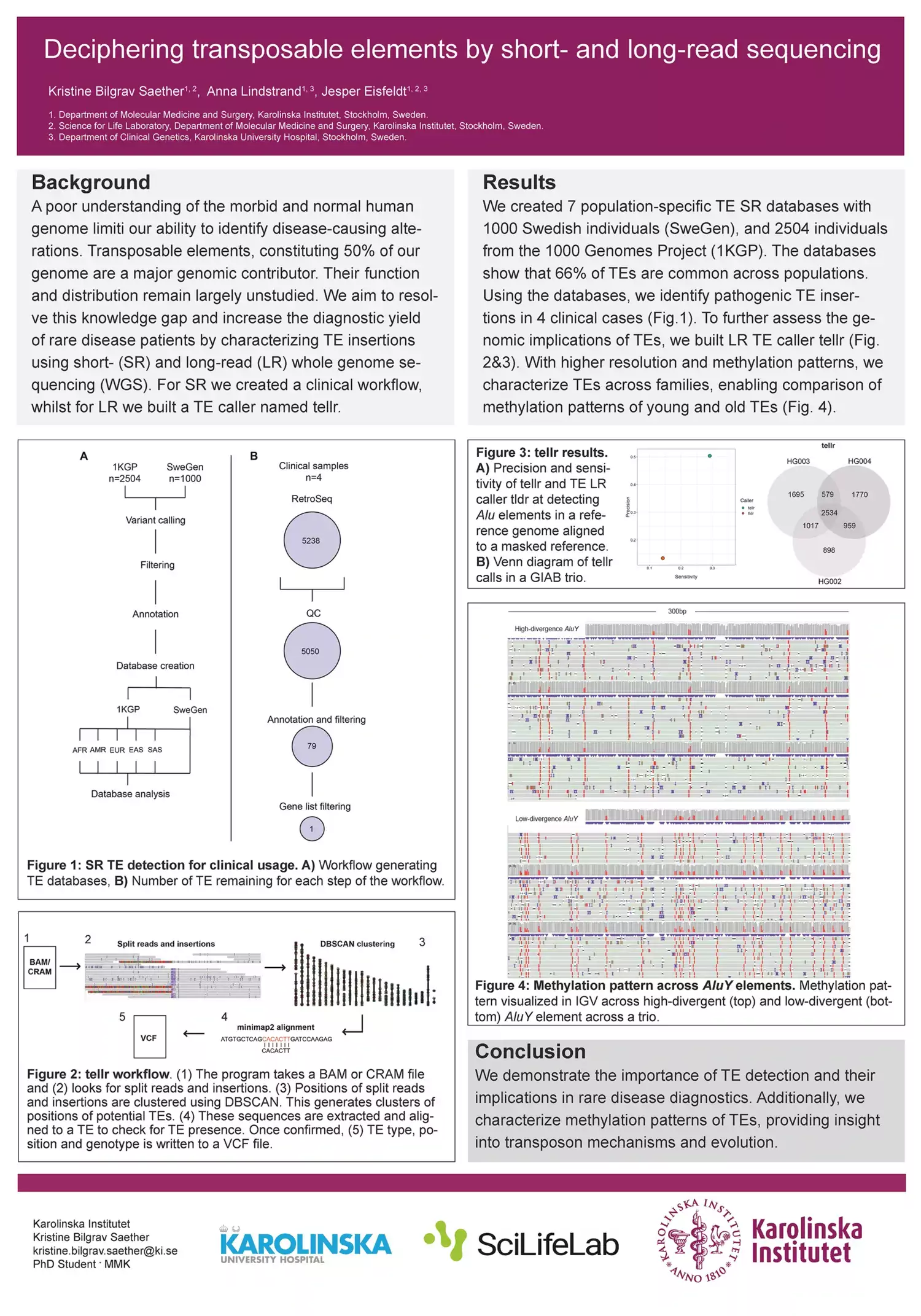Poster 8 - Kristine Bilgrav Saether, Rare Diseases
MMK Department's Day 2024

Kristine Bilgrav Saether, Rare Diseases
Title: Deciphering transposable elements by short- and long read sequencing
Scientific Summary
A major factor limiting our ability to identify disease-causing alterations is a poor understanding of the morbid and normal human genome. A major genomic contributor of which function and distribution remain largely unstudied are the transposable elements (TE), which constitute 50% of our genome. We aim to resolve this knowledge gap and increase the diagnostic yield of rare disease patients.
We characterized TE insertions by short- (SR) and long-read (LR) whole genome sequencing (WGS). We utilize SR databases with 1000 Swedish individuals (SweGen)1, 2504 individuals from the 1000 Genomes Project dataset (1KGP)2 and clinical samples. Using an additional 10 samples with both SR and LR WGS we verify the identified TEs enabling us to assess the true positive rate of the calls. Using the Swedish and 1KGP datasets, we created seven population-specific TE insertion databases. Most insertions were common across populations, where 66% of TEs found in the SweGen dataset were also found in the 1KGP dataset. Using these databases to filter normal TEs, we identify pathogenic TE insertions in clinical cases. The filtration led to manageable variant lists (<80 variants) that with further gene list filtering result in a single variant. To further assess the genomic implications of TEs, we study methylation patterns across TE insertions of different evolutionary age, enabling comparison of reference TEs methylation patterns of young and old TEs.
Altogether we demonstrate the importance of TE insertion detection and their implications in rare disease diagnostics. Additionally, we characterize methylation patterns of TE insertions in 10 individuals, providing insight into transposon mechanisms and evolution.
References
- Ameur A, Dahlberg J, Olason P, Vezzi F, Karlsson R, Martin M, et al. SweGen: a whole-genome data resource of genetic variability in a cross-section of the Swedish population. Eur J Hum Genet. 2017;25(11):1253-60. doi: 10.1038/ejhg.2017.130.
- The Genomes Project C, Corresponding a, Auton A, Abecasis GR, Steering c, Altshuler DM, et al. A global reference for human genetic variation. Nature. 2015;526(7571):68-74. doi: 10.1038/nature15393.
